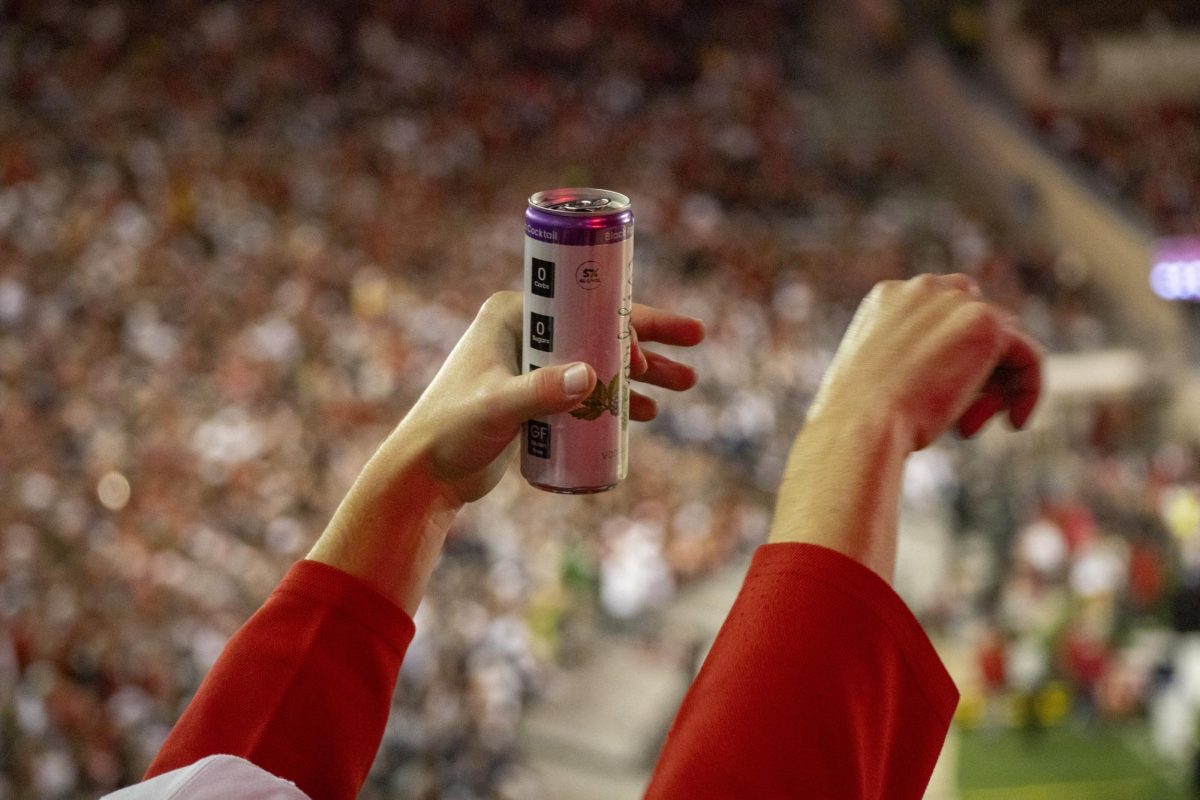The 2024 football season was the first time the University of Wisconsin allowed alcohol sales at Camp Randall Stadium. But, despite introducing more alcohol to game days, data from the University of Wisconsin Police Department shows a surprising outcome.
Executive Director of Communications for UWPD Marc Lovicott said that the department has seen a decrease in the number of citations and ejections from the stadium, which tend to be alcohol-related, in comparison to previous years.
“Looking at the data so far this year, comparing it with last year, we’ve seen about a 25% decrease in the number of citations that we’ve issued,” Lovicott said.
This trend was not entirely unexpected by the UWPD. Lovicott said UW reached out to other Big Ten partners to ask what they’d observed since introducing alcohol to their large venues.
“All of them told us, surprisingly, that the number of incidents and police contacts and citations actually went down,” Lovicott said.
One potential reason for the decrease, according to Lovicott, is that fans may be choosing not to overindulge in alcohol before the game since they can now purchase drinks inside the stadium.
This shift in drinking behavior has had a noticeable impact on the level of intoxication at Camp Randall.
“We also have seen a decrease in the intoxication level of individuals that we contact,” said Lovicott. “Five, six or seven years ago, it wasn’t uncommon for us to send four or five or more people to detox during a game. Now we’re seeing one, maybe two per game.”
While the overall number of alcohol-related incidents has decreased, UWPD is still closely monitoring and will try to take a closer look at underage drinking at the games.
UWPD’s enforcement strategy at Camp Randall focuses on behavior, rather than just age, according to Lovicott.
“We’re looking for people who are exhibiting behavior that could be a danger to themselves, to others or just being disruptive,” said Lovicott.
Law enforcement’s role is to ensure game attendees have a positive game day experience, and only step in when someone is visibly intoxicated and causing a disturbance, Lovicott said.
When UWPD sends a student to detox, it usually results in an underage alcohol citation, Lovicott said.
But, in some cases, medical amnesty might apply. In such situations, UWPD issues a citation but holds it, provided the student fulfills the requirements for medical amnesty, Lovicott said.
The introduction of alcohol sales at Camp Randall was a long-planned process, with the UWPD having a seat at the table throughout the discussions. Overall, the introduction of alcohol sales at Camp Randall hasn’t appeared to have any negative impacts, but Lovicott said UWPD and UW Athletics will continue to monitor the situation and make any necessary adjustments for future seasons.
Assistant Director for High-Risk Drinking Prevention at UHS Jenny Damask discussed college students’ drinking habits.
“Our data shows that more and more students are coming to campus as non-drinkers, and they’re maintaining that status into their first semester,” Damask said “This is a national trend, and it’s really exciting to see.”
Damask said this data was collected from AlcoholEdu.
Damask attributed this change to a variety of factors, including the potential impact that the COVID-19 pandemic had on the current generation of college students.
Damask emphasized the importance for UW to adapt its programming to meet the needs of non-drinking students by providing them with opportunities to engage and connect in social settings where alcohol is not present.
As for the potential health impacts of alcohol use, both in the short and long term, Damask highlighted issues such as impaired decision-making, memory problems, disrupted sleep patterns and the risk of developing dependencies or chronic health conditions like heart disease and cancer.
“The short-term effects can definitely have an impact on how well students perform academically,” Damask said. “That’s why we encourage them to stay within what we call the ‘social zone,’ keeping their blood alcohol content below 0.06.”
This helps students remain physically and mentally present, which is crucial for their studies and overall well-being, Damask said.
Associate Vice Chancellor for Health and Well-being and the Executive Director of UHS Jake Baggott addressed the recent policy change that permits alcohol sales at Badger games. He said the university has implemented a comprehensive approach to ensure responsible consumption and a positive fan experience.
“We really thought through the infrastructure and policies to support those who want to enjoy a beverage in a responsible way,” Baggott said.
He attributed the 25% decrease in arrests to things like mandatory training for servers, strict ID checking and a text line for reporting concerning behavior.
The revenue generated from alcohol sales is not being used to boost the university’s revenue. Instead, much of these funds are being reinvested to enhance alcohol-free programming and support services for students in recovery, Baggot said.
“This isn’t about making money,” Baggott said. “It’s about providing a good fan experience, but also using those resources to help students in positive ways.”
Both Damask and Baggott stressed the importance of destigmatizing alcohol use and mental health issues on campus. They highlighted the university’s Badger Recovery program, a community that offers a supportive environment for students navigating sobriety.
UHS wants to make it easy for students to seek help and support when they need it and destigmatize these issues, Damask said.
“By providing accessible resources, we can empower students to make healthy choices and prioritize their well-being,” Damask said.



